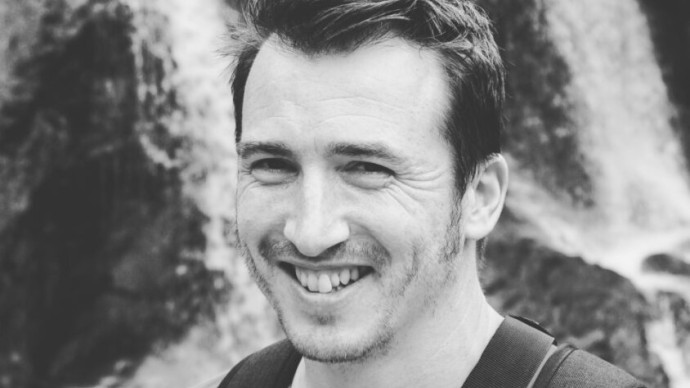Introducing award-winning scriptwriter, Professor Simon Stephens
Page header image

Standfirst
In this piece, we hear about award-winning scriptwriter, Professor Simon Stephens who joined Manchester Met in 2017.
He is best known for his stage adaptation of the novel The Curious Incident of the Dog in the Night-Time, for which he won the 2015 Tony Award for Best Play.
Main story
In the year that Manchester Met is celebrating its 200th anniversary, Professor Stephens has won a prestigious Olivier Award for his adaptation of Uncle Vanya by Anton Chekhov at the Duke of York’s Theatre.
He collected the ‘Best Revival’ award alongside Sam Yates who directed the production, the actor Andrew Scott who played every character, and set designer Rosanna Vize at the star-studded event which took place at the Royal Albert Hall.
Other nominees in the category were; The Effect by Lucy Prebble at the National Theatre Lyttelton, Macbeth by William Shakespeare at the Donmar Warehouse and Shirley Valentine by Willy Russell at the Duke of York’s Theatre.
The awards serve to showcase the best of London theatre and the talent that exists in the sector. They are recognised internationally as the highest honour in British theatre, equivalent to the BAFTA Awards for film and television, and the BRIT Awards for music.
Professor Stephens’ Vanya has been described as radical. In the one-person play, actor Andrew Scott brings multiple characters to life in an exploration of human emotions – hopes, dreams, and regrets.
Professor Stephens has a large portfolio of plays, staged over the last two decades. They include the critically acclaimed Pornography (2007), Punk Rock (2009) and The Curious Incident of the Dog in the Night-Time (2012), which premiered at the National Theatre and later toured on the West End and Broadway. It went on to win seven Olivier awards, then the equal record for a single play.
Many of his recent works, including The Funfair (2015) and Fatherland (2017) have premiered in Manchester theatres.
Simon Stephens video
More stories
Discover more of our creative alumni
-
![A headshot of Chris Sayer smiling at the camera]()
Emmy Award-winning alumnus, Chris Sayer
Find out more -
![A profile picture of James who is wearing a black top. You can see the New York skyline through the window behind him.]()
A Q&A with alumnus James Corner
Find out more -
![Alumni Ryan Gander is sat being interviewed by a female]()
An interview with Ryan Gander
Find out more -
![A headshot of Liz Newell who is smiling at the camera]()
A Q&A with alumna Elizabeth Newell
Find out more -
![Ibukun Baldwin sat smiling at the camera]()
An interview with Ibukun Baldwin and Professor Alice Kettle
Find out more
About 200 years
Manchester Met celebrates two centuries of driving progress through excellent education and research.
-
![200 years 1824-2024]()
200 years
Find out more -
![Siemens Chief Executive Carl Ennis posing with the firms degree apprentices]()
Driving economic growth
Find out more -
![Two nurses standing together and smiling]()
Transforming health
Find out more -
![A digital image of the university's arts buildings]()
Championing creative excellence
Find out more









